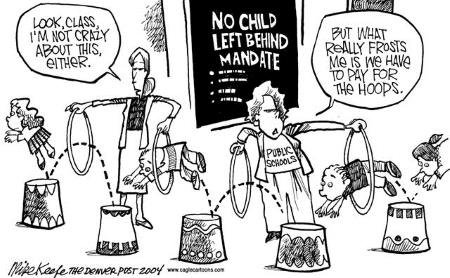 As I was writing the birthday post for Russ Meyer, I managed to get myself sucked into watching Faster, Pussycat! Kill! Kill! My plan was just to watch a bit of it to get reacquainted with it. But I couldn’t stop watching it. It really is a shockingly good movie.
As I was writing the birthday post for Russ Meyer, I managed to get myself sucked into watching Faster, Pussycat! Kill! Kill! My plan was just to watch a bit of it to get reacquainted with it. But I couldn’t stop watching it. It really is a shockingly good movie.
Let me run down the plot for you so that this is clear to those who haven’t seen the film — or at least not in a while. It starts with the three women dancing in a go-go club. The men are the way men tend to be in those places. That’s just set up. The film cuts immediately to the three dancers driving around rural California in her own sports cars. They end up at a spot used by people to race cars where they meet a young couple, Tommy and Linda. The leader of the dancers, Varla (Tura Satana), ends up killing Tommy, and drugging and kidnapping Linda. When they stop to get gas, they find out about an old crippled man who is supposed to have lots of money on his farm.
The dancers go to the farm looking for the money. We find out that the old man became crippled while saving a beautiful young woman from a train. The woman caught the next train — probably because that was why she was at the train station to begin with. But as a result, the old man has a raging hatred of beautiful women who remind him of this incident. So apparently, he has his mentally limited beefcake younger son kill such women while he watches, getting some thrill out of it.
Although it’s totally pulp fiction, it also has remarkably well formed and motivated characters — always fully in keeping with the genre. This allows for the psychopathic lead, Varla (Tura Satana), to be matched with an equally (or more) evil antagonist, the old man (Stuart Lancaster). So the emotional core of the film exists in the supporting cast who are all sympathetic in their ways — victims of circumstances.
The best example of this is Rosie (Haji), Varla’s first lieutenant or enforcer or whatever you want to call her. Although she spends much of the first half of the film arguing that they just kill Linda, the young girl they kidnapped, Rosie never really kills anyone. She does run over the old man, but clearly against her will. The film goes to great pains to show that Rosie’s motivation is that she’s in love with Varla. As such, she is clearly the most tragic character in the film, and arguably the most sympathetic. Who hasn’t fallen in love with the wrong person?
Rosie is also the most intelligent and analytical of the three dancers. Varla, of course, is just a psychopath who has little interest in anything but demonstrating her power over those around her. She’s an interesting contrast to Billie who just wants to have a good time. But Varla and Billie are just alike in never thinking much about the future. They both would have been better off if they had listened to Rosie — something neither of them ever did.
Rosie is matched on the farmer side by the old man’s elder song Kirk (Paul Trinka). His commitment to his family has resulted in his father planning to kill him. He is mocked for reading books. (Nerds as noble characters is a constant thread in Meyer’s work.) He tries to limit the damage done by his father. And once it becomes clear that the kidnapped girl Linda is threatened by both his father and Varla, he spends the rest of film trying to protect her.
Interestingly, Kirk is also attracted to Varla in an unhealthy way. When she seduces him because she wants to get information about where the old man’s money is hidden, Kirk gets some of the best dialog in the whole film. After telling Varla that she is like his father in most ways, he explains why he is there kissing her, “Because you’re a beautiful animal. And I’m weak, and I want you.” But unlike Rosie, Kirk is not a tragic character because he is able to move beyond his attraction to Varla to actively fight against her.
The other aspect of the film that is really interesting is that it is fundamentally a feminist vision of the world. It isn’t just the portrayal of the physical power of the three lead women. Nor is it that men are largely portrayed as obnoxious and weak. But the film does seem to be saying that the only reason that women don’t completely dominate the world is because they haven’t chosen to do so. But the best reflection of the feminist basis of the film is found in the ending.
The last 20 minutes of Faster, Pussycat! Kill! Kill! is setting up a final confrontation between Kirk and Varla. Kirk and Linda have been fleeing across the desert. Varla, after killing everyone else, uses the family truck to track down Kirk and Linda. Varla and Kirk fight with obvious results: Kirk is about to die, just like Tommy did at the start of the film. So Linda runs to the truck and starts it up. This gets Varla’s attention and she moves toward the truck, allowing Linda to run her down.
This is fairly standard in a movie today. But this was fifty years ago — in 1965. That’s the year when the top five grossing films were: The Sound of Music, Doctor Zhivago, Thunderball, Those Magnificent Men in their Flying Machines, and everyone’s favorite, That Darn Cat! What’s more, when I see a strong female character in most movies today, I don’t usually believe it. It is proforma: stuck in the film the same way that the eccentric sidekick is. It’s movie writing via Mad Libs. Russ Meyer offers something more.
I first saw Faster, Pussycat! Kill! Kill! 20 years ago. I thought it was an amazing film then. But it has only improved over time. I really don’t understand why it isn’t a more widely admired film. There doesn’t seem to be any rational reason why Criterion Collection hasn’t released it with film scholar commentaries. So it must be that there is an irrational reason: it’s a Russ Meyer film. It’s exploitation. It has big breasted women who show them off. But I think there is something more: our society hasn’t even caught up to where Russ Meyer was in 1965.

 The evidence is overwhelming that the rich and powerful of Venezuela have followed a continuous, constantly morphing plan to de-stabilize the country and take over the government by any means necessary and that the United States government knows about that plan, supports it and, as much as it can, is assisting in it…
The evidence is overwhelming that the rich and powerful of Venezuela have followed a continuous, constantly morphing plan to de-stabilize the country and take over the government by any means necessary and that the United States government knows about that plan, supports it and, as much as it can, is assisting in it… Ah, the good old days! That was when conservatives everywhere resorted speaking in only sentences that consisted of a noun, verb, and “Greece.” Every conservative policy under the sun had to be enacted or: “We’ll turn into Greece!” Well my friends, now United Kingdom Prime Minister
Ah, the good old days! That was when conservatives everywhere resorted speaking in only sentences that consisted of a noun, verb, and “Greece.” Every conservative policy under the sun had to be enacted or: “We’ll turn into Greece!” Well my friends, now United Kingdom Prime Minister 
 Last week, Stephen Mucher, the director of Bard College’s “master of arts in teaching” program, wrote an important article,
Last week, Stephen Mucher, the director of Bard College’s “master of arts in teaching” program, wrote an important article,  Today, the legendary session bass player Carol Kaye is 80 years old. In the 1950s, she was a bebop jazz guitarist — working a lot in Los Angeles. But in 1957, she just happened to start working in the studio on the first Sam Cooke album. The following year, she created that great guitar part for Ritchie Valens’ hit “La Bamba.” It actually sounds a lot like a bass part, so it isn’t surprising that she went on to be known primarily as a bass player.
Today, the legendary session bass player Carol Kaye is 80 years old. In the 1950s, she was a bebop jazz guitarist — working a lot in Los Angeles. But in 1957, she just happened to start working in the studio on the first Sam Cooke album. The following year, she created that great guitar part for Ritchie Valens’ hit “La Bamba.” It actually sounds a lot like a bass part, so it isn’t surprising that she went on to be known primarily as a bass player. As I’ve expanded exactly what a birthday post is, it was inevitable that I would finally get to deaths. But today we have a special death. On this day 35 years ago, Archbishop
As I’ve expanded exactly what a birthday post is, it was inevitable that I would finally get to deaths. But today we have a special death. On this day 35 years ago, Archbishop